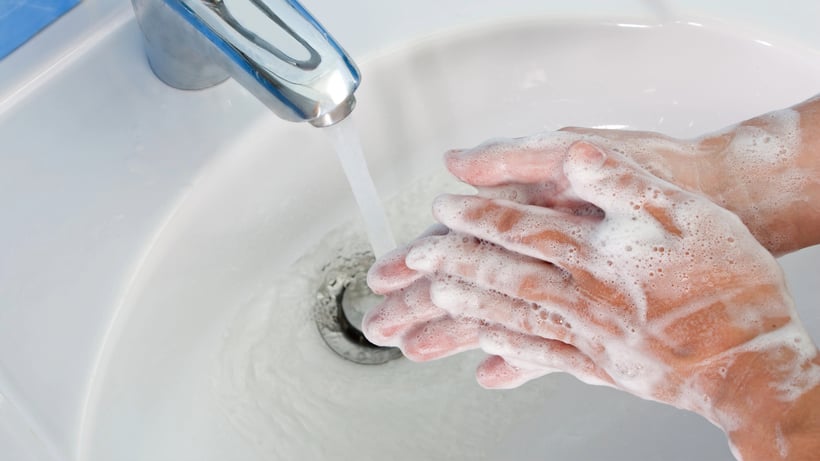
World Hand Hygiene Day, observed annually on May 5th, is a critical reminder of the importance of maintaining clean hands when working with food.
Hand hygiene is simple, yet vital. Proper hand washing drastically reduces the spread of harmful pathogens, decreasing the risk of food-borne illnesses that impact millions of Australians yearly.
There is plenty of data backing up the effectiveness of hand washing. Research conducted by the Centers for Disease Control and Prevention (CDC) indicates that washing our hands can help reduce diarrheal diseases by at least 30 per cent.
Everyone should consistently wash their hands, from delivery drivers to Food Handlers and Food Safety Supervisors. In other words, proper hand washing is essential for all food industry workers, not just those directly touching food.
There should be no excuses for not washing your hands well and often: it’s a basic action that could even help save lives.
The 20-Second Rule
Proper hand washing requires you to wet your hands, lather with soap and warm water, and rub them together for at least 20 seconds. It’s not just your fingers and palms that need cleaning; you should also wash your fingernails, thumbs, wrists and the backs of your hands. You must rinse your hands well before drying them using a disposable paper towel or hand dryer.
It’s sometimes overlooked, but drying your hands thoroughly is a critical step in the hand-washing process. Even after they’ve been scrubbed and rinsed, wet hands are known to carry 1000 times more pathogens than dry hands.
Soap or Sanitiser?
It’s important to remember that sanitiser is not a suitable substitute for soap.
Washing your hands with soap is the most effective method for killing bacteria and other harmful pathogens. While sanitisers can also reduce the presence of these microorganisms, they are not effective on unwashed hands, and they may lead to chemical contamination if they come into contact with food.
Washing at Regular Intervals
If you work in a food establishment, you must wash your hands numerous times throughout the day. Below are some examples of when hand washing is required:
- Before starting to prepare food
- Before handling ready-to-eat food
- After handling raw meat, poultry or seafood
- After touching garbage
- Before and after eating
- After smoking
- After using the washroom
- After cleaning duties
Making hand washing part of your routine will allow you to minimise risk at critical points where contamination is most likely to occur.
Hand Washing Stations
Workplaces must ensure that designated hand washing stations are available and easily accessible to staff.
Hand washing stations should be equipped with functional sinks, a regular supply of soap (ideally liquid) and hygienic hand drying equipment. Having these facilities available at all times will allow you to carry out effective hand hygiene practices whenever necessary.
Separate sinks should be provided for hand washing, along with signage indicating their intended use. Never wash your hands in sinks used for food preparation.
Food Safety Training
Hand hygiene is covered in detail as part of the food safety training offered by the Australian Institute of Food Safety (AIFS). In fact, both the Food Handler course and Food Safety Supervisor course dedicate an entire lesson to the subject, providing clear guidance on how to keep your hands clean and free from contaminants.
World Hand Hygiene Day is a significant event that reinforces the ongoing efforts to maintain food safety and public health. Through its comprehensive online training programs, the Australian Institute of Food Safety continues to advocate for hand hygiene best practices, significantly reducing health risks associated with improper food handling.
This day reminds us all that something as simple as washing our hands can have a profound effect on our health and the safety of the food we consume.
Enrol with the Australian Institute of Food Safety today to enhance your hygiene standards and protect consumers from food-borne illnesses.




